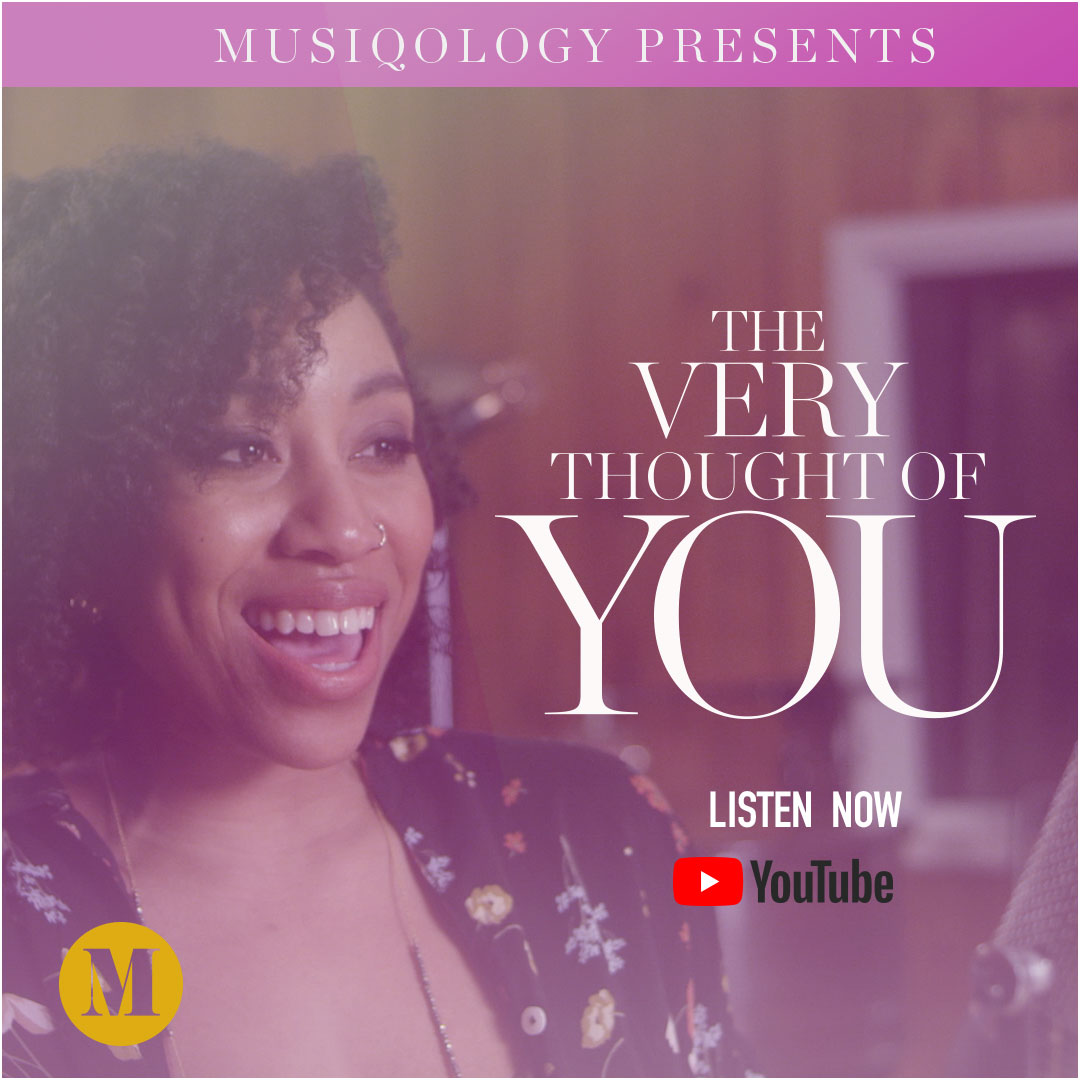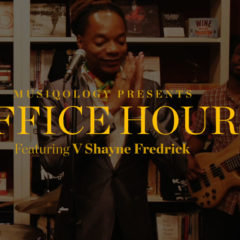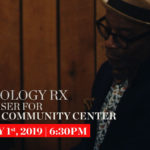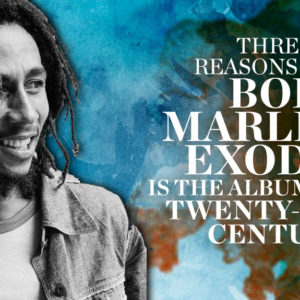While every day is a celebration of African American and Afro-Diasporic music here at MusiQology, the White House once again declared June to be the month where the nation recognizes the contributions of black artists from Bud Powell to Beyoncé and everyone in between. This month, as every month, we renew our commitment to the celebration of African American music, art, and artists. For more on African American Music Month, CLICK HERE.
For a man who famously doesn’t write down the lyrics to his hit songs before recording them, Jay Z, the first MC inducted into the Songwriters Hall of Fame, has had an unconventional orientation to the craft. Honored this past week in a massive ceremony that included a guest list as wide ranging Jon Bon Jovi, Berry Gordy, and Pitbull, the music of the man born Shawn Carter assumed its rightful place among a canon that includes everything from Bob Merrill’s “How Much is that Doggie in the Window?” to Boyz II Men’s “End of the Road” and “I’ll Make Love to You,” both written by Jay Z’s fellow 2017 honoree Kenneth “Babyface” Edmonds. With his wife, Beyoncé, very pregnant, Jay Z was a late cancellation from the evening’s proceedings. An incredible videotaped speech from Barack Obama had to stand in for his absence. But the importance of this moment—for him, for rap, for the way we define what music and songwriting are—is unmistakable.
What makes a great songwriter? Lyricism? Melody? Harmony? Instrumentation? How about flow, metric complexity, and storytelling? Many have rightly pointed to Jay Z’s Songwriters Hall of Fame induction—again, he’s the first rapper to get the call—as a marker of changing cultural attitudes about musicality and songwriting, expanding our definitions and seeing institutional change. It took 17 long years from “Rapper’s Delight” to the first GRAMMY Award for rap, which Naughty by Nature took home in 1996, the same year Jay Z released Reasonable Doubt. Hip hop and rap have undoubtedly taken a central place within our mainstream musical landscape, and for Jay Z’s greatness to be recognized is another important step against the inbuilt politics that delegitimize and devalue the contributions and skill of black artists. While we want to caution against holding this kind of acceptance into white institutional and canonical formations in too high regard, it’s still an important moment for Jay Z and for those who will come after. And with a new album, 4:44, set to be coming to Tidal this Friday, it’s a perfect time to assess his legacy.
To mark the occasion, MusiQology spoke to Dr. Kenton Rambsy, professor of African American literature and digital humanities at the University of Texas at Arlington. Dr. Rambsy, who has brought digital endeavors like text-mining and mapping analyses to African American literature and poetry, notably launched a course in the spring of 2016 that addressed Jay Z and his corpus with similar lenses. The course, titled “The Life and Times of S. Carter,” addresses Jay Z within a larger frame, both historically and in his own era, addressing his centrality within hip hop during its mainstreaming period. Here’s our interview with Dr. Ramsby, which illustrates the intersecting forces at the root of the Songwriters Hall induction.
MusiQology: First off, how did you convince your school to let you teach a course on Jay Z?
Kenton Rambsy: He’s recognizable enough to the point where even if you’re not a Jay Z fan, you’ll be like, “Oh my God, I love Beyoncé and that’s her husband.” Also, when I first got the idea, I realized I could teach a class on Jay Z because he was so interconnected—if I taught a class on Jay Z, I was teaching a class on Kanye. I could talk about Timbaland. Just Blaze. Pharrell. The Neptunes. He was the link to talk about all these other people.
MQ: How did that work historically? What are the kinds of connections we should be making to the prior cultural work of black Americans?
KR: If you look back at so many other things like Frederick Douglass’s Narrative of a Life, James Weldon Johnson’s Autobiography of an Ex-Colored Man, Native Son, Invisible Man…a lot of times, they kind of go through similar narrative structures. You realize you were “oppressed” in some way. You have to do something to get out of where you are. You have to make a physical migration to another place. You have to get into fistfight or a fight of some sort. You have to confront your adversary. You have to think about how you rise above these inequalities. They tend to follow the same narrative arc. It’s actually very easy to connect a writer to Jay Z. If you’ve read Invisible Man and Narrative of a Life by Frederick Douglass, they kind of deal with the same things about finding out “who I am” as a black man and recognizing what racism is.
MQ: I see how rap connects in these kinds of autobiographical and personal narrative connections. But in terms of form, many would suggest it’s closer to poetry, right?
KR: To some extent. As far as thinking about rap as poetry, we’ve kind of moved past that point. Instead we should ask “whose poetry” or “whose literature” because if we think back to Black Arts Movement, the way that you get access to some sort of art—the medium by which you receive it—is actually how you interpret it. Jay Z is so widely acceptable, so I think, “How do we actually tell the story right about Jay Z? I don’t want to think of him just as a rapper from Brooklyn. It’s more useful to think about him joining a longer train of black men telling stories about racism in America. How does he update a narrative in 1996 when Reasonable Doubt is released? How is it going to be different from Frederick Douglas but at the same time the same. Their stories are timeless, and they shouldn’t be timeless.
MQ: I assume that what you probably run up against is sometimes dialectic…your goal is not to say “rap is as good as the literary canon” because what that does is re-center the literary canon and its supremacy. You want it to be thought of on the same level as that thing without privileging it. How do you resist that framing?
KR: Even if poetry is rap literature, we actually have to say that it’s something more than just literature and poetry. Think about meter and rhyme and all these kinds of things—the rhythm of it—some are kind of thinking of this is metaphorical ways. But how do you actually narrate a story while also keeping in time and creating something that people can actually bob their heads to? That’s more interesting. When we see the Black Arts Movement putting poetry to free jazz and then moving onto something a little more uniform and formulaic, I think that’s one of the bigger things within this path that I’ve tried to show. It happened on its own. So I actually start these courses with Amiri Baraka and BAM to say, “These poets were bringing music to their poems.” We weren’t calling it rap music at this point, but it’s part of a longer history.
I know rap was founded in the South Bronx. I know that’s the narrative. But also I’d like to think about what other things that were happening in general that helped shape the culture of rap music. So many other artistic developments were going on, so I’m trying to trace the development of black artistic languages. The ring shout and the days of slavery bring us up to the preacher and the sermon. The Black Arts Movement brings us to hip hop. These pathways upset the centrality of certain narratives. So I want to think about it not just “is rap poetry?” but instead thinking of all of these things in a continuum. What’s the continuum going on with black speech? How do we draw on an Afrofuturistic set of terms? How do we reinvent or re-envision mediums?
MQ: So moving back to Jay Z a little bit, this seems like one of the things we have to sort out. This is a big deal, that he was the first rapper inducted into the Songwriters Hall of Fame. But it’s sort of running up against this same thing a little bit, right? What does this mean within this wider legacy frame?
KR: Of course every time we talk about all of these writers, one of the biggest things when we talk about people like Richard Wright and Toni Morrison is the institutional awards that they got. That’s how we really start perceiving them as writers worth consideration. That has its pluses and minuses. But in this specific case, I really think it’s important that he be recognized as a writer and not just a rapper because it kind of positions him in another field. It gives him this other type of credibility that most rappers don’t have. I always go back to Jay Z’s ghost-writing for Space Jam. It’s writing. He’s been writing for so many people for so long, and it takes a lot of work and skill to come up with these particular lyrics. It takes a lot to tell a concise story. It takes a lot to think about the economy of words. I think it’s interesting and it’s actually very timely because it shows Jay Z is being thought of in a way that emphasizes his intellectual capabilities as a writer and not just a person who spits the words.
MQ: So what is it about Jay Z’s contributions to literature and music that made him the one who was recognized? What is so important about Jay Z?
In 2017, rap is here to stay, and that is in large part due to Jay Z, who is an architect of modern hip hop in a lot of different ways. He was able to make himself and constantly reinvent himself. He’s been around and relevant since 1996; that’s over twenty years. For a rapper. Rappers don’t stay on the scene that long. He’s also broken down so many various barriers. He’s the solo artist with the most Billboard #1 albums. He has more #1 records than Elvis. And he’s a rapper. So the thing for me is…He has all these accolades and he has all of these particular things that put him ahead of other legendary figures, but we’re not necessarily acknowledging this other aspect of his career, his songwriting capabilities. When we look at Jay Z, he stands the test of time and has global visibility. He also has a consistency with his records. I think that’s the biggest thing he’s been able to do. One of the reasons we value Toni Morrison so much is because she’s so consistent with her novels. I think Jay Z is similar, and that’s one of the big reasons why he’s been considered worthy as a songwriter and not “just” a rapper.
What’s a Jay Z song that is important within his broader songwriting portfolio. When we think of Jay Z as SONGRWRITER, what’s a song or two that illustrate those chops.
The one that I always think about is “Never Change.” That samples David Ruffin’s “Common Man.” We always say, “Jay Z is a soulful artist,” but we never qualify that by what we mean. Also it’s produced by Kanye, so that’s another important connection. We get this soulful sound with the two of them as architects, but the idea is that he’s drawing on the themes that he grew up, that his parents were constantly referencing. I think that gives us a little bit of insight into how Jay Z thinks as a person. The hook is “I’m still fuckin’ with crime, ‘cause crime pays/Out hustlin’, same clothes for days/I’ll never change, I’m too stuck in my ways;” that shows his multivalence and lyrical dexterity. Jay Z’s persona is the ultimate hustler, but here’s giving us every single facet of his personality. “D’Evils,” “Lucifer”…there are too many to name.
MQ: Did you get a chance to see the Obama video? Do you have any thoughts about that? What do we need to know that connection?
KR: One thing that Obama touched on in that video that I thought was so important is the idea of thinking about the internecine roots of institutional racism. I think having Obama touch on these types of things, he’s able to build a similar bridge as Jay does. His bridge is to the political; Jay Z’s is the cultural. And it’s important to remember that Jay Z as a rapper might mean more to someone than him being the president. They have these similarities with each other and with others that make their stories more common. I think that’s the thing that I focused on the most—a kid from Marcy Projects and a kid from Kansas who grew up in Hawaii are able to be inspired by each other.
MQ: In his tweet sharing the video, Jay Z said that Obama is the greatest rapper of all time. What does that mean?
I mean…Obama spit some game for us and we bought it, you know? [laughs] It’s not just about having the best policy. How do you actually reach people on an individual level with your actual words? I think his words, his rap…He inspires in a similar way that Jay Z does. They can really motivate their bases.
Zora Neale Hurston once said that African Americans’ greatest contribution is their rich similes and metaphors. I think we see that in Jay Z and Obama. How can they use these metaphors to connect ideas, concepts, and people outside of their immediate environments. That’s notable in and of itself. Obama is known for saying “power never concedes anything without a demand.” That’s Frederick Douglass. That’s Frederick Douglass 101. But he makes it sound so much cooler, and that shows the way he made us inspired by remixing words from another century and making them relate to what we’re going through now. If that’s not rap, I don’t know what is.

 Share On Facebook
Share On Facebook Tweet It
Tweet It








